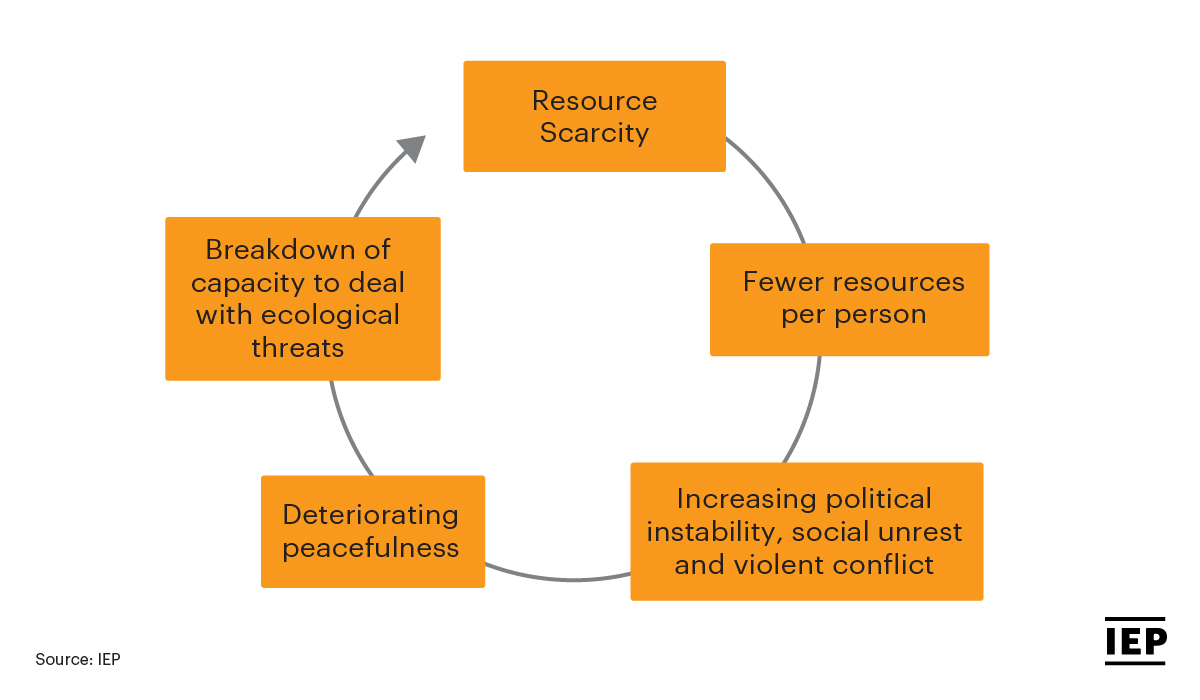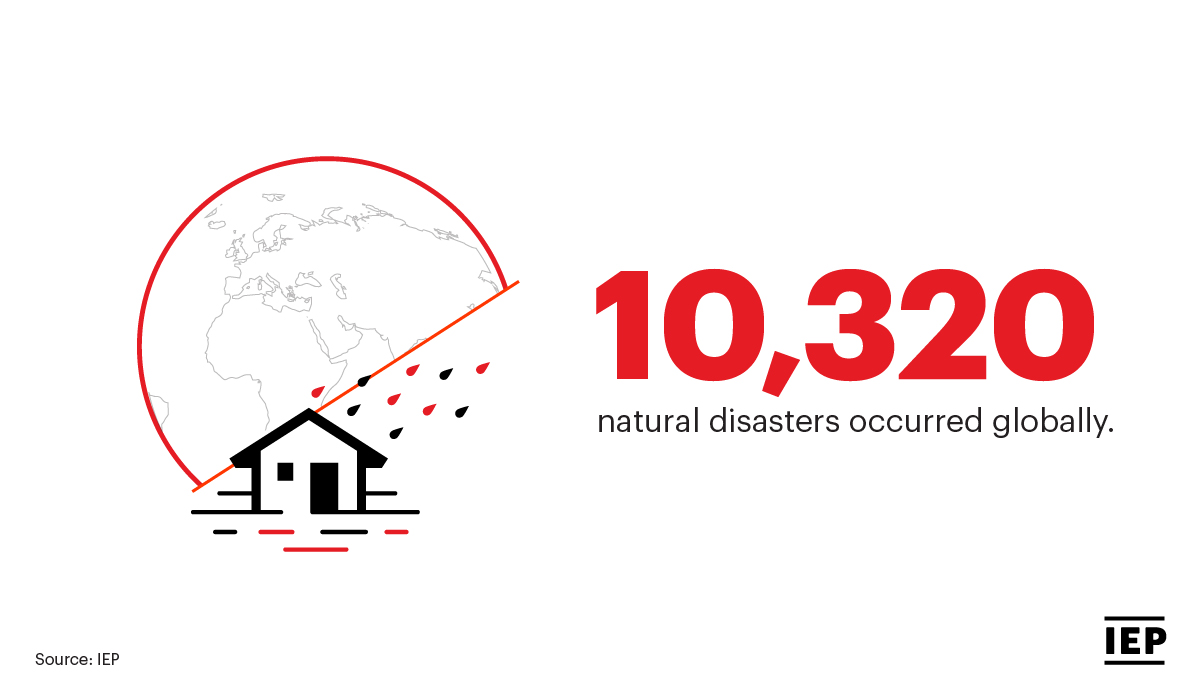This excerpt from the second webinar of the Positive Peace and Climate Change Mitigation series by Institute for Economics & Peace (IEP) and Greenfish focuses on showcasing the link between Positive Peace and ecological threats, and its relevancy for the business world. The panel featured Ms. Julie Bleeker – Sustainable Business Transformation Manager (Greenfish) and Mr. Serge Stroobants – Director of Europe and MENA Region (Institute for Economics & Peace).
The main finding from the Ecological Threat Report is that a cyclic relationship exists between ecological degradation and conflict. It is a vicious cycle whereby degradation of resources leads to conflict, and the ensuing conflict leads to further resource degradation.
This can be seen as eleven of the fifteen countries facing the worst ecological threats are currently in conflict, and another four are at a high risk of substantial falls in peace.

As of 2021, 47 countries are home to 3.3 billion people that face high to extreme ecological threats, but many have adequate levels of resilience to face these ecological shocks. Another 46 countries face low ecological threat levels, with 35 exposed to very low threats and in relation to peace, eighty-nine percent of these countries have a high Positive Peace score.
When it comes to results on undernourishment and food insecurity, both have been steadily rising since 2015, after levels had previously been improving for some years. Now, the projected number of undernourished people by 2050 is 1.1 billion. This is because of contributing factors like high population growth, lack of potable water and an increasing land degradation.
Food insecurity remains a serious and rising challenge, with Sub-Saharan Africa having the highest prevalence of food insecurity.
Serge Stroobants highlighted on the need for a systemic approach for the solutions we implement to break the vicious cycle of ecological degradation and conflict.

With the increasing risk of flooding in a vast majority of countries and the rise of other ecological threats caused by global warming, we are bound to wonder what will be the impacts on our lives and our economy?
In her presentation on “Why are ecological threats relevant in the business world?”, Julie Bleeker explored the idea that while an ecological threat is also a threat to human life and to our economy, she also explored the idea that a healthy environment could benefit our economy.
Through well-functioning ecological systems, anything provided by nature, businesses could engage in multiple new services and opportunities. The ecological threats can threaten the operations of the private sector, but also can create opportunities for resilience.
Increasingly, businesses have given value to natural assets to reframe the way companies engage with Nature. By tackling ecological threats, such as erosion, businesses can invest in ecological solutions and become more resilient – while also making the planet more resilient.
Watch the full webinar below